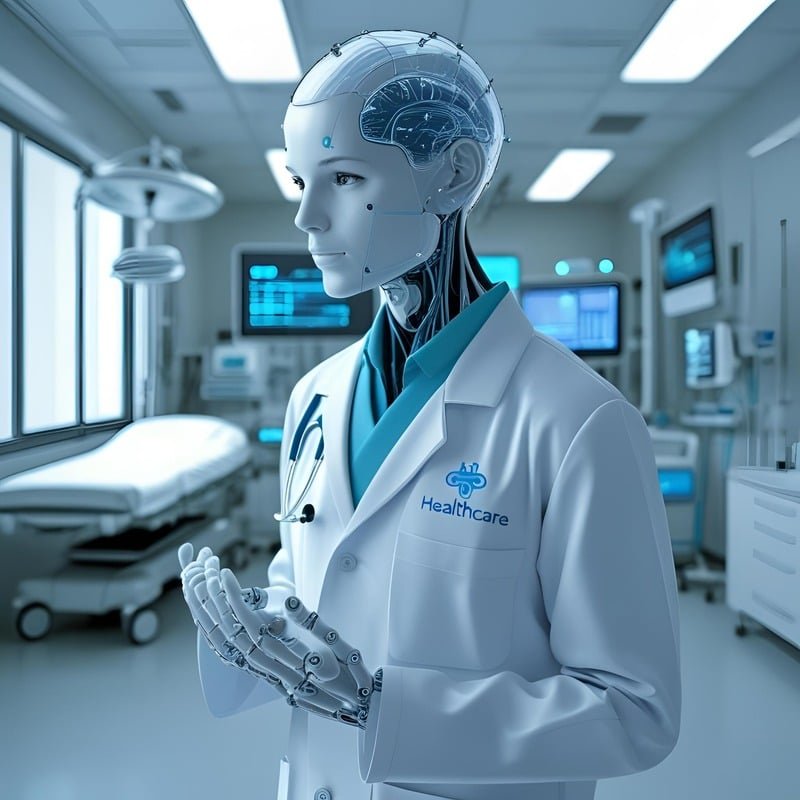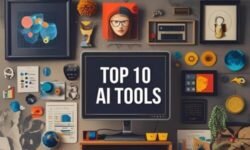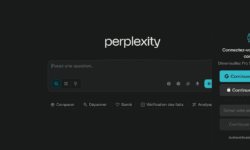AI in Healthcare: Benefits, Risks, and Future Opportunities
Introduction to AI in Healthcare
Artificial Intelligence (AI) is no longer just a futuristic concept in science fiction movies—it’s here, and it’s transforming the way we live, work, and even heal. Among the industries most profoundly impacted, healthcare stands at the forefront. From AI-powered diagnostic tools to robotic surgeries, AI is revolutionizing how medical professionals diagnose, treat, and prevent diseases.
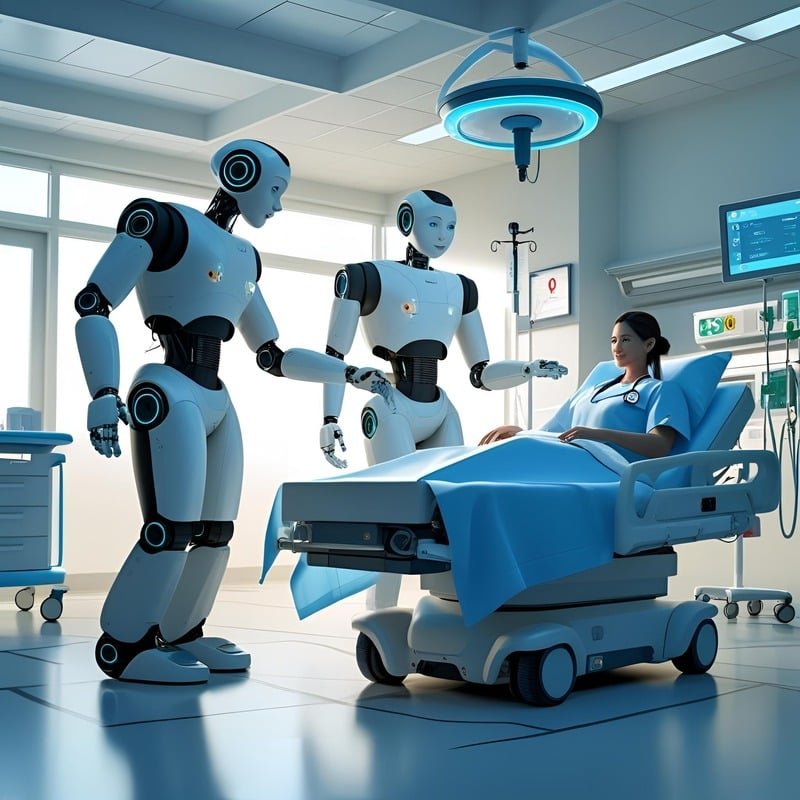
What is AI in Healthcare?
AI in healthcare refers to the use of machine learning algorithms, natural language processing, robotics, and other advanced technologies to assist in various medical tasks. Unlike traditional computer systems that follow pre-programmed instructions, AI systems can learn from data, adapt over time, and even provide insights that humans might miss.
For instance, AI algorithms can analyze thousands of medical images in seconds, detect patterns in patient data, or predict disease risks years before symptoms appear. This combination of speed, precision, and scalability makes AI a powerful ally in modern medicine.
Why AI Matters in the Medical Field
The healthcare industry faces many challenges: rising costs, a shortage of medical professionals, and increasing patient demands. AI helps address these challenges by:
- Reducing time-consuming tasks like analyzing lab results.
- Improving decision-making through predictive analytics.
- Enhancing patient experiences with personalized care.
In short, AI has the potential to not only make healthcare more efficient but also to save lives by improving accuracy and accessibility.
How AI is Transforming Healthcare Today
AI is not a distant dream—it’s already here, making a difference in hospitals, clinics, and research labs. Let’s look at some of the most significant transformations AI is driving in healthcare.
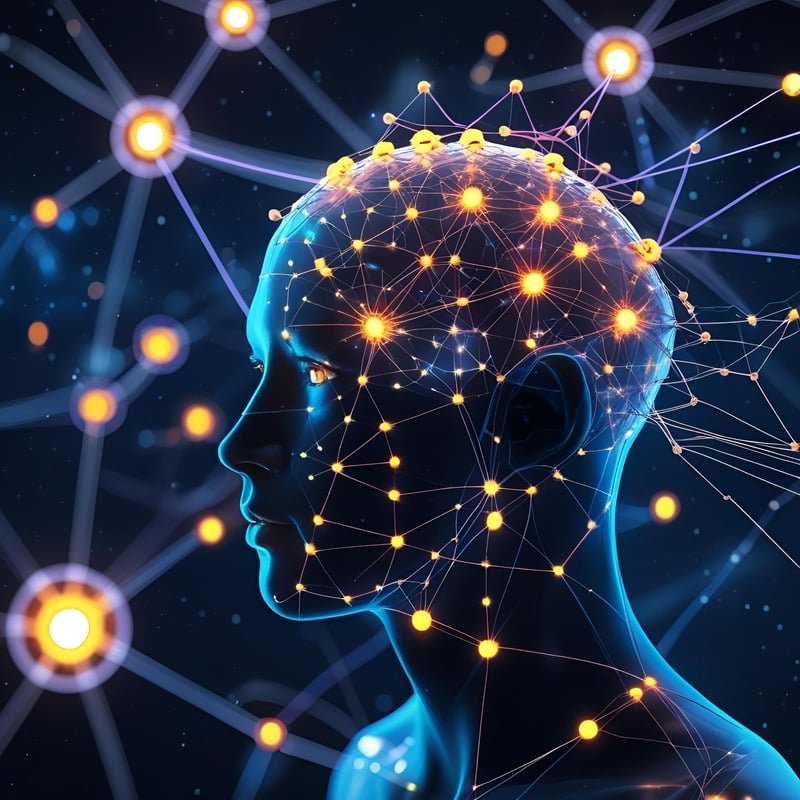
AI in Diagnostics and Imaging
Radiology is one of the fields most impacted by AI. AI-powered imaging tools can scan X-rays, MRIs, and CT scans with remarkable accuracy. For example, Google’s DeepMind has developed AI that can detect eye diseases earlier than human specialists. Similarly, AI systems can detect cancerous tumors or pneumonia in chest X-rays with higher accuracy than many radiologists.
What’s more, AI doesn’t get tired, and it can process thousands of images in the time it takes a human to analyze a handful. This makes it an invaluable assistant in busy hospitals where quick, accurate diagnoses can make the difference between life and death.
AI in Patient Care and Virtual Health Assistants
AI-powered chatbots and virtual assistants like Ada Health and Buoy Health are helping patients self-assess symptoms and guiding them to appropriate care. These digital assistants reduce the burden on healthcare staff by answering common questions, scheduling appointments, and even reminding patients to take medications.
Hospitals are also using AI to monitor patients in real time. For example, AI systems can track vital signs and alert doctors if a patient shows early warning signs of deterioration. This proactive approach ensures quicker interventions and better outcomes.
AI in Drug Discovery and Development
Developing new drugs is a time-consuming and expensive process—sometimes taking up to 10 years and billions of dollars. AI accelerates this process by predicting how different compounds will behave, identifying promising drug candidates, and even simulating clinical trials.
During the COVID-19 pandemic, AI played a critical role in analyzing virus structures and identifying potential vaccines at unprecedented speed. Pharmaceutical companies like Pfizer and Moderna leveraged AI tools to bring vaccines to market faster than ever before.
Key Benefits of AI in Healthcare
While AI has multiple applications, its benefits can be grouped into four main areas: accuracy, efficiency, personalization, and accessibility.
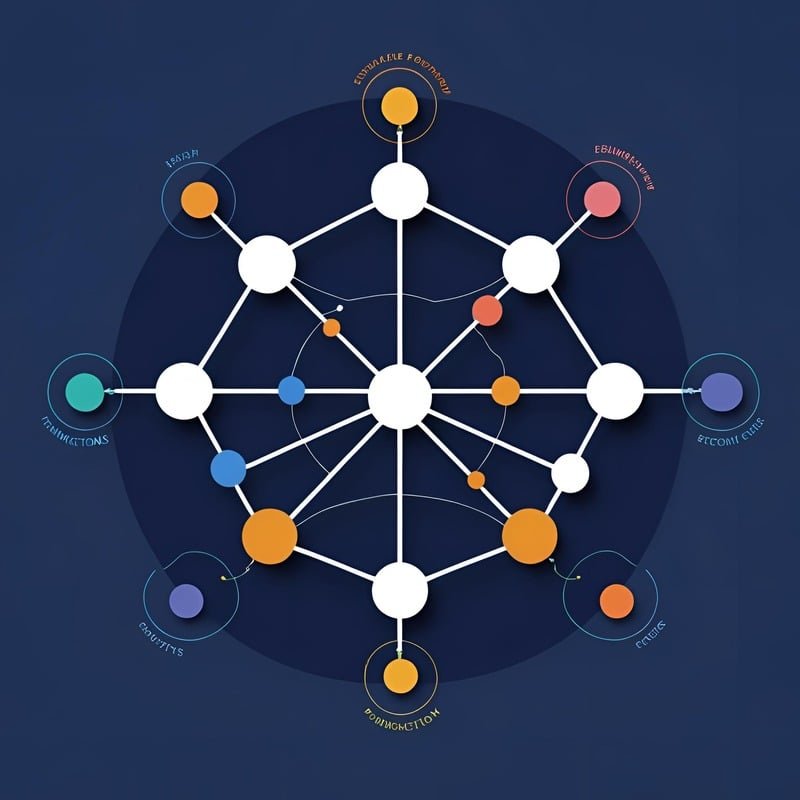
Improved Accuracy and Faster Diagnoses
Human error is inevitable, especially in high-stress medical environments. AI reduces these errors by analyzing data objectively and consistently. For example:
- AI algorithms can detect breast cancer in mammograms with accuracy levels comparable to expert radiologists.
- AI tools in cardiology can predict heart disease risks by analyzing scans and patient history.
This level of accuracy leads to earlier interventions and better patient survival rates.
Cost Reduction and Efficiency
Healthcare costs are skyrocketing worldwide, but AI can help reduce expenses. Automating repetitive tasks such as data entry, billing, and appointment scheduling frees up healthcare professionals to focus on patient care. AI-powered tools also streamline operations, reducing hospital stays and unnecessary procedures.
For example, AI predictive analytics can identify patients at risk of hospital readmission, helping hospitals plan better and avoid unnecessary costs.
Personalized Treatment Plans
Every patient is unique, and AI helps doctors tailor treatments accordingly. By analyzing genetic data, lifestyle factors, and medical history, AI systems can recommend treatments designed specifically for an individual. This is especially impactful in oncology, where AI-driven precision medicine is revolutionizing cancer care.
Imagine two patients with the same type of cancer. Traditional treatment might prescribe the same medication for both. AI, however, could determine that one patient responds better to immunotherapy while the other benefits more from chemotherapy. This personalized approach improves outcomes and reduces side effects.
Remote Healthcare and Accessibility
In rural or underserved areas, access to healthcare is limited. AI bridges this gap by enabling telemedicine and remote monitoring. Patients can use wearable devices that track vital signs, with AI analyzing the data and sending alerts to doctors when necessary.
For example, AI-powered apps can help diabetic patients monitor blood sugar levels in real time, ensuring timely adjustments in treatment. This level of accessibility can significantly improve health outcomes in areas with limited medical resources.
Risks and Challenges of AI in Healthcare
As promising as AI is, it comes with its share of risks and challenges that must be carefully managed.
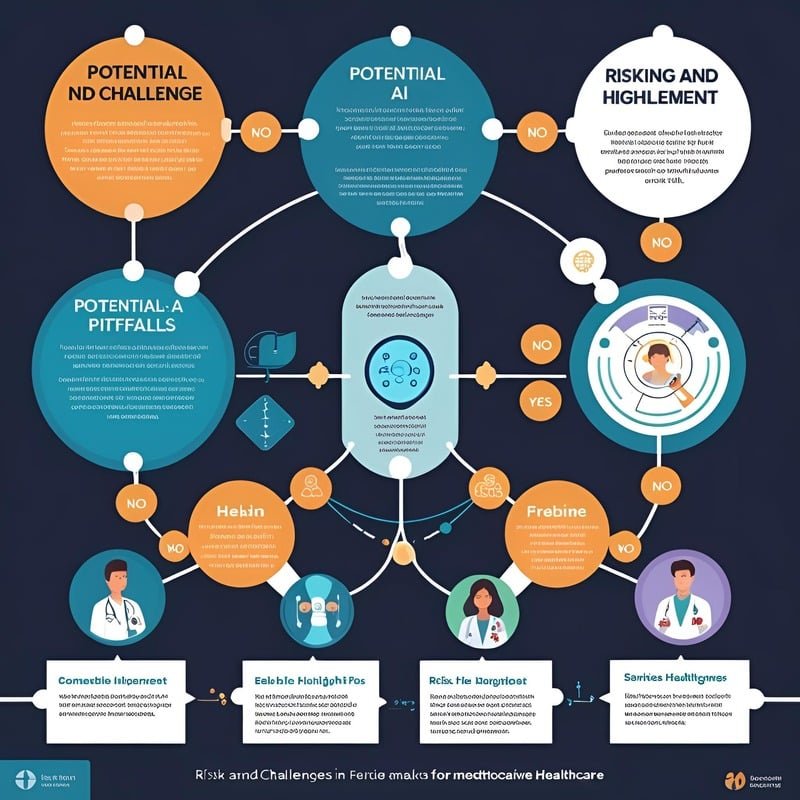
Data Privacy and Security Concerns
Healthcare data is highly sensitive. AI systems require massive amounts of patient data, raising concerns about privacy and cybersecurity. A breach in medical records could expose patients to identity theft or misuse of information.
Hospitals adopting AI need robust cybersecurity measures and strict compliance with data protection laws like HIPAA (in the U.S.) or GDPR (in Europe).
Ethical Issues and Bias in AI Algorithms
AI is only as good as the data it learns from. If the data is biased, the AI’s decisions will be biased too. For instance, an AI trained mostly on data from Western populations may not perform as well on patients from Asia or Africa. This can lead to inequalities in healthcare delivery.
Ethical concerns also arise when patients are not fully informed that AI is involved in their diagnosis or treatment. Transparency is essential to build trust in AI-driven healthcare.
Risk of Overdependence on Technology
While AI can enhance healthcare, it should not replace human judgment. Over-reliance on AI could lead to situations where doctors blindly trust machine-generated results without applying critical thinking.
Healthcare must strike the right balance—using AI as a tool, not a replacement.
Regulatory and Legal Challenges
The rapid growth of AI in healthcare has outpaced regulations. Governments and healthcare authorities are still working to create frameworks that ensure AI tools are safe, reliable, and accountable.
For example, if an AI system misdiagnoses a patient, who is responsible—the doctor, the hospital, or the AI developer? These legal gray areas must be addressed before AI can reach its full potential in healthcare.
Future Opportunities of AI in Healthcare
While AI is already making waves in today’s healthcare landscape, its true potential lies in the future. The next decade will see AI advancing far beyond diagnostics and patient monitoring. From disease prevention to robotics-assisted care, the opportunities are both exciting and transformative.
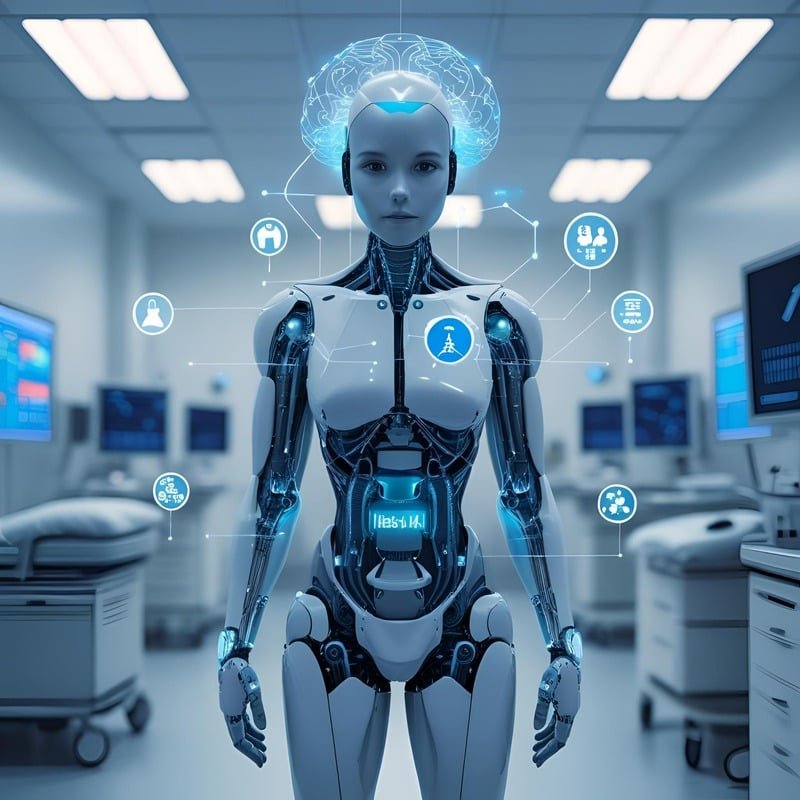
Predictive Analytics for Disease Prevention
Imagine a world where doctors can predict diseases before they even develop symptoms. This is what predictive analytics aims to achieve. By analyzing patterns in patient history, lifestyle habits, genetics, and environmental data, AI can identify early warning signs of conditions like heart disease, diabetes, or Alzheimer’s.
For example, AI models can predict the likelihood of a person developing Type 2 diabetes based on their activity levels, diet, and genetic predispositions. With this foresight, doctors can recommend preventive measures such as lifestyle changes, targeted medication, or regular monitoring.
This proactive approach could shift healthcare from a “treatment model” to a “prevention model,” potentially saving billions in healthcare costs while improving quality of life.
AI in Genomics and Precision Medicine
One of the most exciting opportunities lies in genomics—the study of genes and their roles in health and disease. AI can analyze vast genetic datasets to uncover how specific genes influence disease risk or treatment response.
This is the foundation of precision medicine, where treatments are tailored to the unique genetic makeup of each patient. For example, in cancer therapy, AI can identify which mutations are driving tumor growth and suggest the most effective drugs for that individual.
By combining genomics with AI, doctors can move away from “one-size-fits-all” treatments and offer highly personalized care.
Robotics in Surgery and Patient Care
Robotic-assisted surgeries are already a reality in many hospitals. With AI integration, these systems will become even more precise and adaptable. Robots can assist surgeons by stabilizing instruments, providing real-time analytics, and even performing certain procedures autonomously.
Beyond surgery, robotics and AI could play a role in patient care. Imagine AI-powered robots helping elderly patients with mobility, delivering medications, or providing companionship. These innovations could alleviate the strain on healthcare workers while improving patient well-being.
AI for Global Health and Resource Management
AI has the potential to bridge healthcare gaps worldwide, particularly in developing countries where medical resources are scarce. For example, AI-powered diagnostic apps can help frontline workers in rural areas identify diseases without the need for expensive equipment or specialists.
AI can also help governments and organizations optimize resource allocation—such as predicting hospital bed demand during flu seasons or pandemics. By providing data-driven insights, AI ensures that limited resources are used where they’re needed most.
Balancing Human Touch with AI in Healthcare
While AI offers incredible advancements, one thing it can never replace is the human touch in healthcare. Medicine is not only about diagnosing and treating diseases—it’s about empathy, trust, and the doctor-patient relationship.
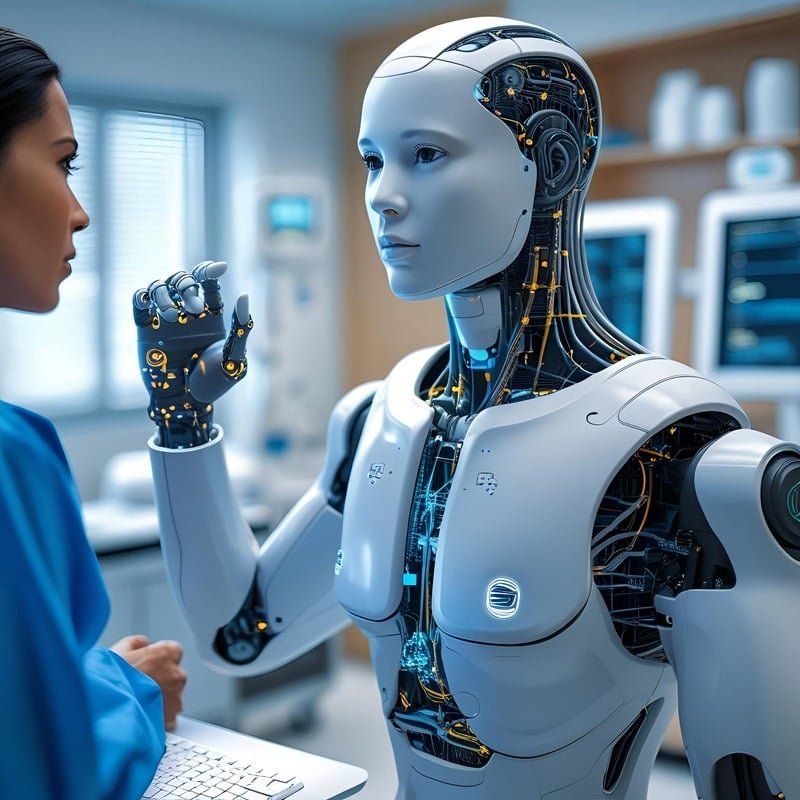
Role of Doctors and Healthcare Professionals in the AI Era
Doctors will continue to play a central role in healthcare, but their responsibilities may evolve. Instead of spending hours on paperwork or manual analysis, they’ll rely on AI to handle repetitive tasks. This gives them more time to focus on patient interaction, empathy, and decision-making.
AI can serve as a powerful assistant, but doctors will always be needed to interpret results, communicate with patients, and make final decisions. For instance, an AI system might identify a tumor in a scan, but it takes a human doctor to explain the diagnosis, answer questions, and guide the patient emotionally through treatment.
Building Trust Between Patients and AI Systems
For AI to succeed in healthcare, patients must trust it. Many people are hesitant about machines making life-and-death decisions. Transparency and explainability are critical—patients should know when AI is being used, how it works, and why it recommends certain treatments.
Healthcare providers must also ensure that AI complements, rather than replaces, human care. A reassuring word, a compassionate gesture, or a doctor’s empathy cannot be replicated by algorithms. Striking the right balance between AI efficiency and human compassion will define the future of medicine.
Preparing for the Future of AI in Healthcare
As AI continues to grow, the healthcare system must prepare to embrace it fully while addressing its challenges.
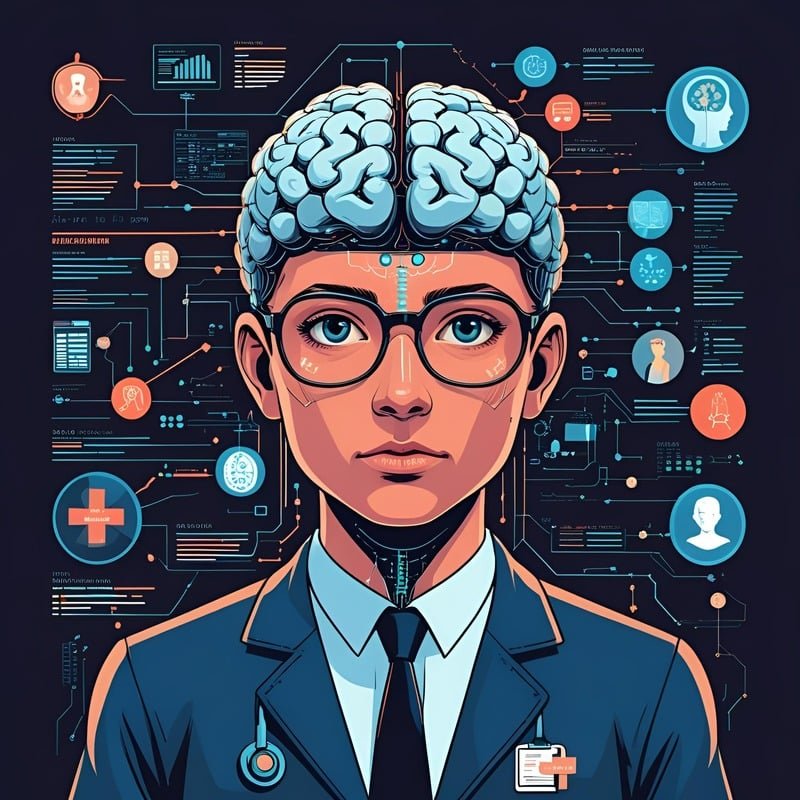
Skills Healthcare Workers Will Need
Doctors, nurses, and medical staff won’t necessarily need to become AI programmers, but they will need to develop AI literacy—the ability to understand how AI works, what its limitations are, and how to use it effectively.
Future healthcare professionals will need:
- Data literacy: Understanding how data is collected, processed, and applied.
- Critical thinking: Interpreting AI recommendations with human judgment.
- Digital skills: Navigating AI-powered tools and platforms.
Medical schools are already beginning to introduce AI-related courses to prepare the next generation of healthcare workers.
Policy Making and Global Collaboration
For AI to flourish safely in healthcare, strong regulations and international cooperation are essential. Governments must create policies that protect patient data, ensure fairness, and establish accountability in AI use.
International collaboration is equally important. Diseases don’t recognize borders, and neither should healthcare innovations. By sharing AI models, medical data (with privacy safeguards), and resources globally, we can accelerate progress and ensure equitable access to AI-driven healthcare.
Conclusion
Artificial Intelligence in healthcare is no longer a futuristic idea—it’s a present-day reality with enormous potential to reshape medicine as we know it. From improving diagnostic accuracy and enabling personalized treatments to enhancing efficiency and expanding healthcare access globally, AI has already proven to be a game-changer.
But, like any powerful tool, it comes with risks. Data privacy concerns, ethical issues, and overdependence on algorithms are challenges that must be carefully managed. Regulations and policies will play a crucial role in ensuring that AI is used responsibly, fairly, and transparently.
The future of AI in healthcare will likely be defined by balance. AI will handle the heavy lifting—analyzing massive datasets, spotting patterns invisible to the human eye, and streamlining operations. Meanwhile, doctors and healthcare professionals will continue to provide the compassion, empathy, and human connection that no machine can replicate.
Ultimately, AI should not be viewed as a replacement for human healthcare providers but as a powerful partner that enhances their abilities. By embracing AI while addressing its challenges, we can build a future where healthcare is more accurate, affordable, and accessible for all.
FAQs
1. How is AI currently used in healthcare?
AI is already being used in diagnostics (like analyzing X-rays and MRIs), patient care (through chatbots and monitoring systems), and drug discovery. It also helps with hospital management, predicting patient readmissions, and improving treatment plans.
2. Will AI replace doctors in the future?
No, AI will not replace doctors but will assist them. AI can handle data-heavy tasks, but doctors are still essential for interpretation, emotional support, and ethical decision-making. The future will likely see doctors and AI working hand-in-hand.
3. Is patient data safe with AI systems?
AI systems require massive amounts of data, raising concerns about privacy and cybersecurity. With proper safeguards, encryption, and compliance with laws like HIPAA and GDPR, patient data can be kept secure. Hospitals must invest in robust cybersecurity systems to protect sensitive information.
4. What are the biggest risks of AI in healthcare?
The main risks include data privacy issues, algorithmic bias, overdependence on technology, and unclear accountability when errors occur. Without proper regulation and oversight, these risks could undermine trust in AI-driven healthcare.
5. How can AI make healthcare more affordable?
AI reduces costs by automating administrative tasks, predicting diseases early (reducing expensive late-stage treatments), and streamlining hospital operations. It also enables telemedicine and remote monitoring, which lowers the need for in-person visits and hospital stays.
Final Note
AI in healthcare represents one of the most promising technological revolutions of our time. While challenges remain, the opportunities far outweigh the risks. By embracing AI responsibly, we can create a healthcare system that is smarter, faster, and more compassionate.
External Link Suggestions (DoFollow)
World Health Organization: AI in Health
NIH on Artificial Intelligence in Medicine
Internal Link Suggestions
Beginner’s Best Guide to Machine Learning: What You Need to Know in 2025

